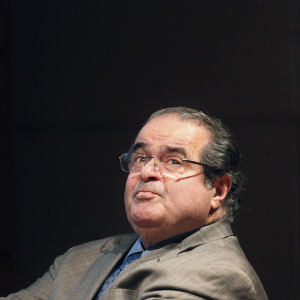President Obama has nominated Judge Merrick Garland to fill the Supreme Court vacancy created by Justice Antonin Scalia’s death last month. As the Constitution is absolutely clear on the process for filling a vacancy — the president makes a nomination and the Senate provides “advice and consent” — President Obama was right to follow the process laid out in our founding document and put forward a nominee.
Unfortunately, many Senate Republicans seem to be far less concerned about what the Constitution says.
Senate Majority Leader Mitch McConnell wasted no time in signaling his intention to categorically refuse to consider any nominee the president put forward, a move that was shocking even in light of the ceaseless obstruction that has been at the center of the GOP’s playbook in recent years.
McConnell’s response to the Supreme Court vacancy, which Politico called “an extraordinary challenge to the practice of considering each nominee on his or her individual merits,” exposed the fact that the GOP is committed to turning the process of replacing a Supreme Court justice in the manner outlined by the U.S. Constitution into a partisan brawl.
The stance of leaders like McConnell becomes even more outrageous when you consider the fact that some of the chief GOP obstructers have already expressed their enthusiastic support for Judge Garland. Sen. Orrin Hatch, who recently said he will not even meet with a nominee, told Reuters in 2010 that if Judge Garland were to be nominated to the Supreme Court, there was “no question” that he would be confirmed by the Senate. Just days ago Hatch said that President Obama “could easily name Merrick Garland, who is a fine man.” A number of Republicans still serving in the Senate, including Hatch, voted in support of Garland in 1997 when he was confirmed with majority support from both parties to the D.C. Circuit Court.
Even Carrie Severino of the Judicial Crisis Network, a right-wing organization helping to lead the obstruction battle, has praised Garland, saying in 2010 that his nomination to the Supreme Court would be “the best scenario we could hope for to bring the tension and the politics in the city down a notch for the summer.”
Any way you cut it, Garland is an eminently qualified nominee with unparalleled experience and support from those across the political spectrum. In the history of this country, we’ve never seen a Supreme Court nominee with more federal judicial experience than Garland.
He is the chief judge of the D.C. Circuit Court, widely considered to be the second most important court in the country, on which he has served for nearly two decades. Throughout his distinguished career, Garland has shown a brilliant intellect and respect for the court’s duty to, in his words, “apply the law to the facts of the case before it — not to legislate, not to arrogate to itself the executive power, not to hand down advisory opinions on the issues of the day.”
That Senate Republicans would refuse to even consider a nominee as extraordinarily qualified as Judge Garland, who has spent nearly his entire career serving his country, is a reprehensible stance — one that is creating an unprecedented constitutional crisis for our democracy.
Given the role the Supreme Court plays in shaping the daily realities of Americans across the country, it’s hard to overstate the importance of a fully functioning high court. The court considers too many critical issues, from voting rights to environmental protection to the rights of workers and, for it to remain short-staffed for what could be an entire year or more.
Now that the president has done his job by nominating Judge Garland, it’s time for our representatives in the Senate to do their jobs. Garland should be given a fair hearing and then an up-or-down vote. Senators are free to vote for or against nominees as they see fit, but blocking the entire process is not only unconscionable, it’s unprecedented.
The process of replacing a Supreme Court justice should be about following the guidelines of the Constitution and protecting the functioning of our judicial system. As President Obama said Wednesday when announcing his nominee, the Supreme Court is “supposed to be above politics. It has to be.” Our nation’s highest court is far too important to be held hostage to partisan obstruction.

